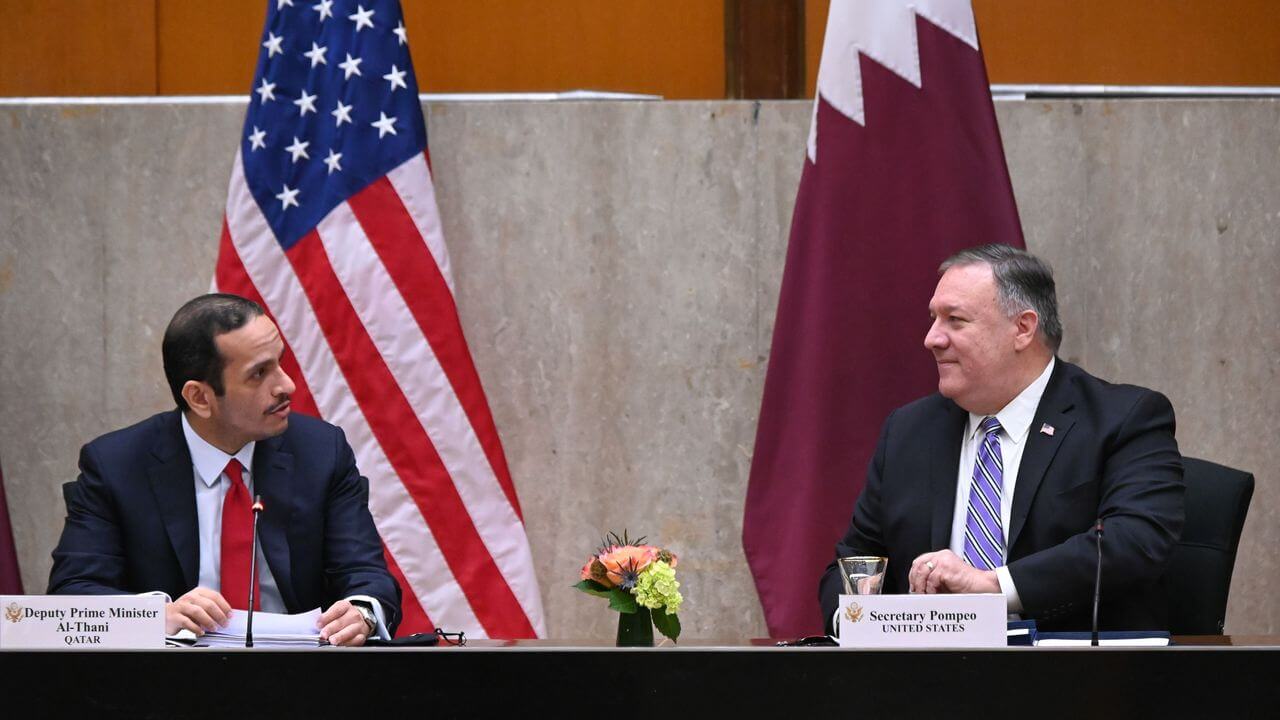The United States (US) deputy assistant secretary of state for Arabian Gulf affairs told reporters on Thursday that Washington was considering upgrading Qatar’s status by naming it as a ‘major non-NATO ally’ (MNNA).
The MNNA status, which is currently held by 17 nations, including Kuwait and Bahrain, gives foreign countries prioritized access to US military equipment and technology, along with other benefits in defense trade and security cooperation. Qatar hosts the largest US military facility in the Middle East, and the close relationship between the two allies was highlighted in a joint statement after the conclusion of the US-Qatar Military Consultative Commission (MCC) on Thursday. The countries reaffirmed the importance of their military cooperation towards security and stability of the Middle East, and said that its partnership was critical in combating terrorism, countering violent extremism, and deterring external aggression in the region.
Earlier in the week, the countries also met for the third Qatar-US Strategic Dialogue, which was held in Washington DC on 14 and 15 September. Qatar’s Deputy Prime Minister and Minister of Foreign Affairs HE Sheikh Mohamed bin Abdulrahman al-Thani and US Secretary of State Mike Pompeo co-chaired the opening session.
The leaders discussed avenues for strengthening the bilateral relationship between Washington and Doha in the fields of health, humanitarian assistance, international development, labor, law enforcement, counterterrorism, commerce, culture, and education. The two sides also addressed issues of regional and global importance, including the situations in Somalia, Sudan, Gaza, Libya, Yemen, and Syria, taking stock of developments in the US-Afghan peace process, which Qatar is supporting by hosting the ongoing intra-Afghan peace negotiations.
According to the statement, the countries also spoke about the prospects for a negotiated resolution to the Israeli-Palestinian conflict. Following its brokering of a “historic” peace deal between the United Arab Emirates (UAE) and Israel to normalize their diplomatic relations over the past few weeks, the US has stepped up its campaign to urge other Arab nations to do the same. It has justified this as a necessary measure to ensure a united Gulf front against Iran. Qatar, however, has said that normalization was “not at the core of this [Israeli-Palestinian] conflict and hence it can’t be the answer”, stressing that the only way this would be possible is if a two-state solution was achieved.
US Considers Designating Qatar a ‘Major Non-NATO Ally’
The MNNA status, which is currently held by 17 nations, including Kuwait and Bahrain, gives foreign countries preferential access to US military equipment and technology.
September 18, 2020

Qatar's Deputy Prime Minister Mohammed bin Abdulrahman Al and US Secretary of State Mike Pompeo. SOURCE: WSJ
